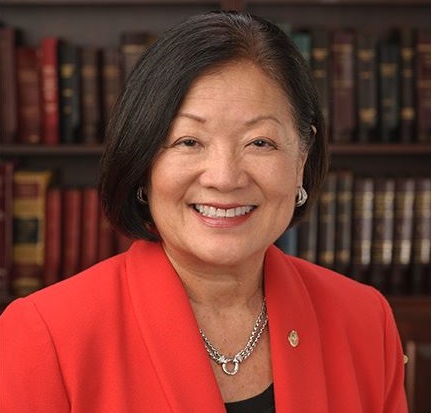March 4, 2020
$8.3 Billion Supplemental Includes Assistance for States, Funding for Vaccine Research, and Resources for Health Care Providers
WASHINGTON, D.C. – Senator Mazie K. Hirono (D-Hawaii) issued the following statement after the successful introduction of bipartisan, bicameral legislation to provide $8.3 billion in funding to confront the public health emergency posed by the spread of the novel coronavirus:“Confronting a growing coronavirus outbreak in the United States requires a concerted, whole-of-government approach that includes a robust federal response and close coordination with state and local governments. This bipartisan, bicameral spending agreement is a significant down payment to fund vaccine research and development, invest in critical public health initiatives, provide assistance for affected small businesses, and support state and local efforts to combat the virus. I will support this package when it comes up for a vote in the Senate and will continue to advocate for a swift and aggressive federal response to this public health emergency.”
The $8.3 billion measure includes:
- Over $2 billion to help federal, state, local, and tribal governments prevent, prepare, and respond to the crisis. This includes nearly $1 billion given directly to states to conduct preparedness and response activities. Hawaii will receive a minimum of $4.5 million dollars under the Public Health Emergency Preparedness Program to conduct activities including:
o Surveillance and monitoring;
o Laboratory testing to identify new cases;
o Tracing to identify additional positive cases;
o Infection control at the local level to prevent new cases; and
o Mitigation activities.
- Over $3 billion for research, development, and review of vaccines, therapeutics, and diagnostics to help protect the health and safety of the American people.
- Nearly $1 billion for health care preparedness, pharmaceuticals and medical supplies, and community health, including:
o Approximately $500 million for procurement of pharmaceuticals, masks, personal protective equipment, and other medical supplies that can be distributed to state and local health agencies in areas with a shortage of medical supplies;
o $100 million for Community Health Centers, supporting smaller health clinics in under-served urban and rural areas; and
o Funding for medical surge capacity, which will increase the supply of biocontainment beds at health facilities across the country.
- $1 billion in loan subsidies that would support $7 billion in low-interest loans for small businesses impacted by financial losses as a result of the coronavirus outbreak.
###
